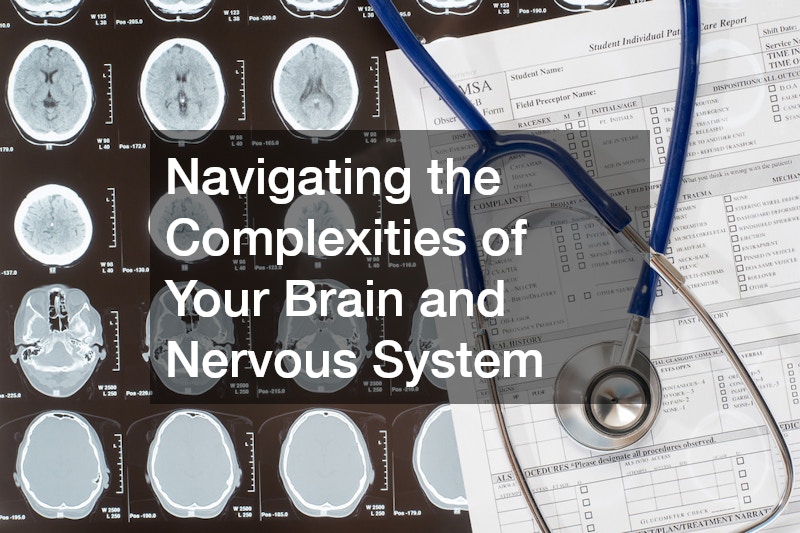In the vast landscape of modern medicine, numerous healthcare disciplines come together to provide comprehensive care and support for various patient needs. Each discipline offers specialized knowledge and skills, ensuring patients receive tailored treatment for their unique conditions. From physical therapy to dental care, understanding these disciplines is essential for patients navigating the complex world of healthcare.
The integration of diverse healthcare services is crucial for effective patient outcomes. As individuals seek treatment for various health issues, they often interact with multiple healthcare providers. This interplay emphasizes the importance of collaboration among disciplines, enhancing the quality of care and improving patient satisfaction. For instance, a patient recovering from an injury may require physical rehabilitation while also benefiting from therapy to address psychological impacts. Similarly, those with hearing impairments might need audiological support alongside regular medical assessments.
Moreover, advancements in technology and treatment methodologies continue to reshape the healthcare landscape. New practices emerge, integrating traditional approaches with innovative solutions to improve patient care. Understanding the breadth of healthcare disciplines helps patients make informed decisions about their treatment options and encourages proactive engagement in their health journey.
In this article, we will explore various healthcare disciplines, each represented by specific services and practices. By highlighting the importance and functionality of each area, we aim to provide a clearer picture of how these disciplines contribute to overall health and well-being.
Patient Recovery

Skin tapes have become an integral part of various healthcare practices, particularly in rehabilitation and sports medicine. These adhesive strips are designed to support and stabilize muscles and joints without restricting movement. Their primary purpose is to alleviate pain and promote healing by providing targeted support.
In physical rehabilitation, skin tapes are used extensively. Therapists apply them to injured areas to enhance proprioception, which is the body’s ability to sense its position and movement. This can lead to improved coordination and reduced risk of further injury. Additionally, skin tapes are often used in conjunction with therapeutic exercises, allowing patients to engage in activities that promote recovery while minimizing discomfort.
The versatility of skin tapes extends beyond rehabilitation. They are also utilized in various settings, including orthopedic care and sports medicine. Athletes frequently rely on skin tapes to prevent injuries during high-impact activities and to manage existing conditions. As a result, understanding the application of skin tapes is essential for healthcare professionals who aim to provide holistic care to their patients.
The Importance of Efficient Records
Medical billing is a critical aspect of healthcare that ensures providers receive compensation for the services they render. It involves the process of submitting and following up on claims with health insurance companies, a task that requires precision and an understanding of healthcare regulations.
This process significantly affects patient access to care, as individuals’ financial situations can influence their willingness to seek necessary treatments. Efficient billing practices can help reduce costs, making healthcare more accessible to a broader range of individuals.
Moreover, medical billing is closely related to the financial health of healthcare providers. Timely and accurate billing contributes to the sustainability of practices, allowing them to continue offering essential services. As healthcare evolves, so too do the complexities of billing processes, necessitating ongoing education for professionals in the field to ensure compliance and efficiency.
Addressing Psychological Needs
Trauma therapy focuses on the psychological impact of traumatic experiences. It encompasses various therapeutic approaches designed to help individuals process and heal from trauma, which can manifest in numerous ways, including anxiety, depression, and PTSD.
Incorporating trauma therapy into healthcare is vital, especially for patients who have experienced significant life events, such as accidents, abuse, or loss. Professionals in this field employ techniques such as cognitive-behavioral therapy and EMDR (Eye Movement Desensitization and Reprocessing) to help patients cope with their emotions and rebuild their lives.
Collaboration between trauma therapists and other healthcare providers, including primary care physicians and physical therapists, is essential. This multidisciplinary approach ensures that patients receive comprehensive care addressing both their physical and emotional needs, ultimately leading to improved outcomes.
Enhancing Lives with Audiological Services

Hearing aid services play a crucial role in addressing hearing impairments, which can significantly impact an individual’s quality of life. Hearing loss can lead to social isolation, cognitive decline, and decreased overall well-being, making effective treatment paramount.
Audiologists conduct assessments to determine the type and severity of hearing loss, recommending appropriate interventions, including hearing devices. The advancements in audiological technology have resulted in more discreet and efficient devices, allowing individuals to regain their hearing and improve their communication abilities.
Moreover, ongoing support and follow-up care are essential components of audiological services. Audiologists work closely with patients to ensure their devices are functioning optimally and to address any challenges they may face in adapting to their new aids. This continuous relationship between patients and audiologists underscores the importance of specialized services within healthcare.
Restoring Function
Physical therapy rehabilitation is a fundamental healthcare discipline focused on restoring function and mobility to individuals who have experienced injury or illness. Professionals in this field employ a range of techniques, including exercises, manual therapy, and modalities like ultrasound or electrical stimulation, to facilitate recovery.
The role of physical rehabilitation extends beyond immediate recovery. It plays a preventive role by educating patients about body mechanics and injury prevention strategies. This proactive approach empowers individuals to take control of their health and reduce the likelihood of future injuries.
Collaboration with other healthcare providers, such as orthopedic specialists and trauma therapists, enhances the effectiveness of rehabilitation. By working as part of a multidisciplinary team, physical therapists can address both the physical and psychological aspects of recovery, leading to a more holistic approach to patient care.
The Significance of Oral Health
Denturists focus on the design, construction, and fitting of dentures, playing a vital role for individuals who have lost teeth. Their expertise is essential in restoring functionality and aesthetics, contributing significantly to patients’ self-esteem and quality of life.
The relationship between denturists and other dental professionals is crucial in delivering comprehensive oral care. While orthodontists focus on aligning teeth and jaws, denturists concentrate on replacing missing teeth, ensuring that patients achieve optimal oral health.
In addition to providing denture services, denturists play a vital role in patient education. They guide individuals on proper denture care and maintenance, helping to prevent complications and ensure the longevity of their prosthetics. This focus on patient-centered care exemplifies the importance of specialized roles within the healthcare landscape.
Navigating the Complexities of Your Brain and Nervous System

Neurological rehabilitation focuses on patients with conditions affecting the nervous system, such as stroke, traumatic brain injury, or multiple sclerosis. This discipline requires a multidisciplinary approach to address the complex needs of individuals recovering from neurological impairments.
Healthcare professionals involved in neurological rehab, including physical therapists, occupational therapists, and speech-language pathologists, work collaboratively to create personalized treatment plans. These plans may encompass physical exercises, cognitive therapies, and communication strategies tailored to each patient’s specific challenges.
The integration of neurological rehabilitation within the broader healthcare framework is essential for achieving positive outcomes. By addressing both physical and cognitive impairments, this discipline supports individuals in regaining independence and improving their quality of life.
The Benefits of General Health and Wellness
Pilates has emerged as a popular form of exercise that emphasizes core strength, flexibility, and overall body awareness. Many healthcare disciplines incorporate Pilates into their therapeutic practices, recognizing its benefits for rehabilitation and fitness.
In rehabilitation settings, Pilates can be utilized to enhance recovery for individuals with musculoskeletal issues or post-operative patients. The low-impact nature of Pilates allows for safe and effective exercise, promoting strength and stability without exacerbating injuries.
Moreover, Pilates classes can serve as preventive care, encouraging individuals to maintain physical fitness and overall well-being. By promoting body awareness and functional movement, Pilates contributes to the broader goals of health and wellness across various healthcare disciplines.
The Crucial Role of Orthopedics
Orthopedic specialists focus on diagnosing and treating conditions related to the musculoskeletal system. Their expertise encompasses a wide range of issues, including fractures, arthritis, and sports injuries. These specialists play a crucial role in coordinating care for patients, often collaborating with rehabilitation professionals and surgical teams.
The importance of orthopedic specialists in the healthcare landscape cannot be overstated. They provide critical interventions that can significantly impact a patient’s mobility and quality of life. Through comprehensive assessments, orthopedic specialists develop personalized treatment plans that may include surgical interventions, physical therapy, and lifestyle modifications.
In addition to treatment, orthopedic specialists emphasize the importance of preventive care, educating patients on injury prevention strategies and the importance of maintaining an active lifestyle. This holistic approach underscores the need for collaboration among healthcare disciplines to achieve optimal outcomes for patients.
Understanding the Impact of Orthodontics

Orthodontists focus on diagnosing, preventing, and treating dental and facial irregularities. Their work is essential for improving not only aesthetics but also the overall function of teeth and jaws.
The integration of orthodontics within the broader dental healthcare framework highlights the importance of collaboration among professionals. Orthodontists often work alongside general dentists, denturists, and oral surgeons to ensure comprehensive care for patients.
In addition to traditional braces, orthodontists now utilize advanced technologies such as clear aligners to enhance patient comfort and satisfaction. These innovations demonstrate the evolving nature of dental care and the importance of staying current with industry trends.
The Future
As healthcare continues to evolve, the future holds exciting possibilities for the integration and collaboration of various disciplines. The rise of telehealth services is one such development that has made healthcare more accessible, allowing patients to receive consultations and follow-up care from the comfort of their homes. This shift is particularly beneficial for individuals with mobility issues or those living in remote areas.
Additionally, a growing emphasis on preventive care is changing the landscape of healthcare. More disciplines are focusing on wellness and lifestyle modifications, which can significantly reduce the incidence of chronic diseases. This proactive approach not only enhances patient outcomes but also alleviates some of the burdens on healthcare systems.
The interdisciplinary approach to patient care is also gaining traction, where teams of healthcare providers from different fields collaborate to address the multifaceted needs of patients. This model fosters a more holistic view of health, recognizing that physical, emotional, and social factors all play a role in an individuals well-being.
Conclusion
The diverse array of healthcare disciplines plays a pivotal role in providing comprehensive care tailored to individual patient needs. Each discipline, from trauma therapy to orthopedic specialists, contributes unique expertise that enhances the overall health and well-being of patients.
Understanding these healthcare services allows patients to make informed decisions about their care, fostering a sense of empowerment in their health journeys. As healthcare continues to evolve, the collaboration among various disciplines will remain essential in addressing the complexities of patient care.
By recognizing the significance of each discipline, we can appreciate the interconnectedness of healthcare services and the impact they have on our lives. From physical rehabilitation to audiological support, the collective efforts of healthcare professionals ensure that individuals receive the holistic support they need to thrive. The journey toward health is multifaceted, and each discipline plays a vital role in helping patients achieve their optimal health outcomes.
As we move forward, embracing innovation and collaboration across these disciplines will be essential in creating a healthcare system that is not only efficient but also compassionate and responsive to the needs of all individuals. The future of healthcare lies in our ability to integrate knowledge, skills, and technology across various disciplines, ensuring that every patient receives the comprehensive care they deserve.

